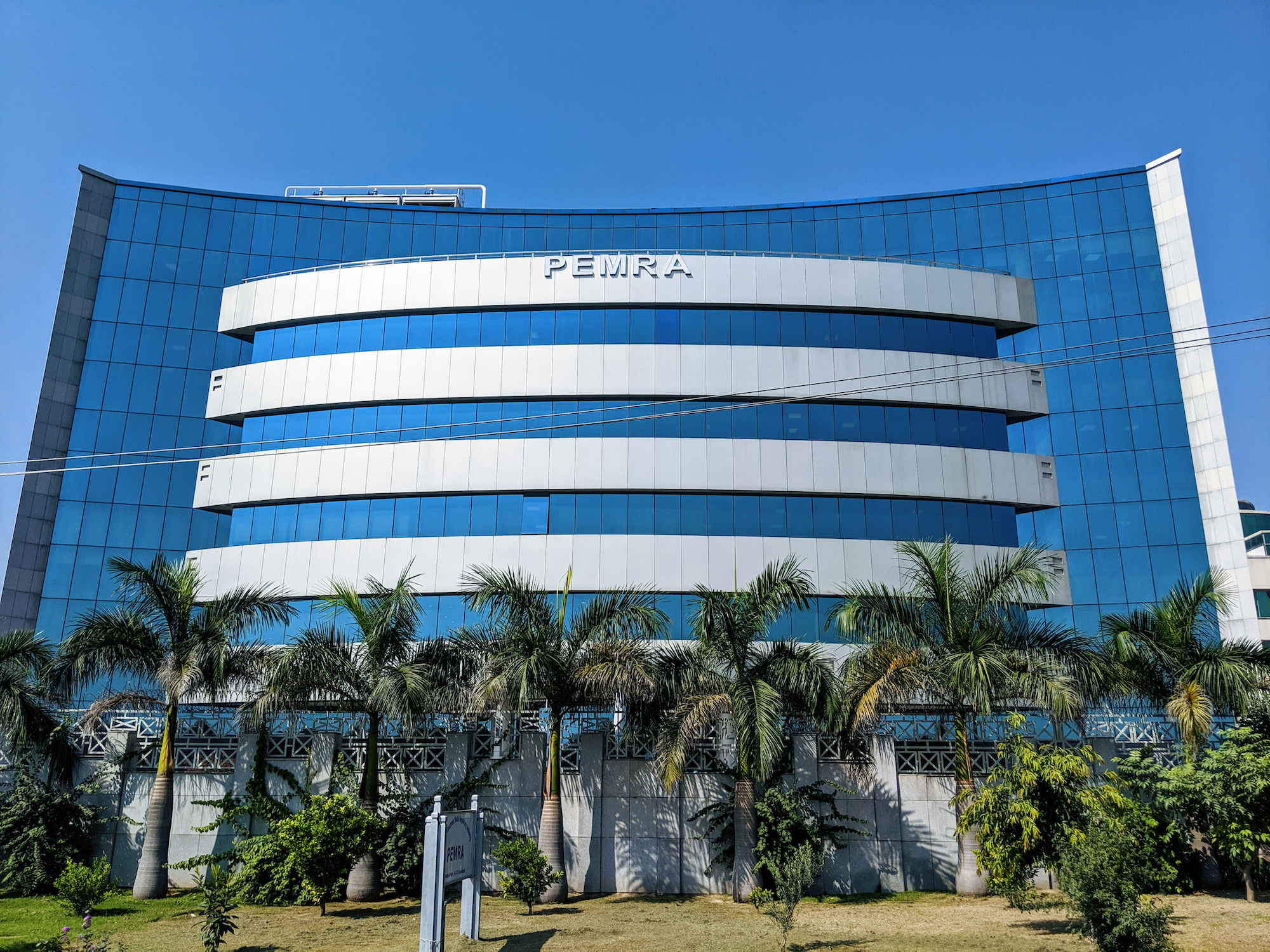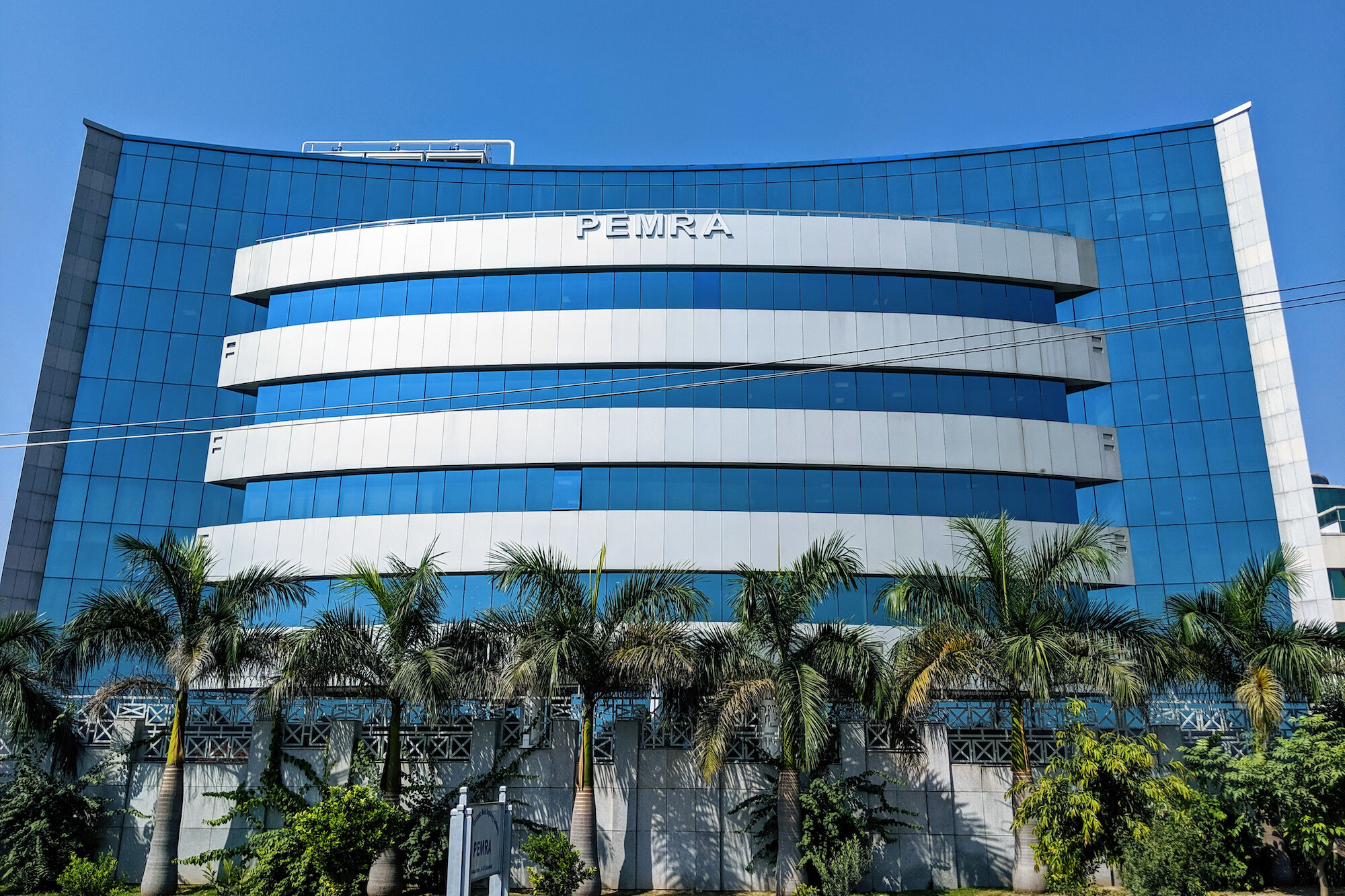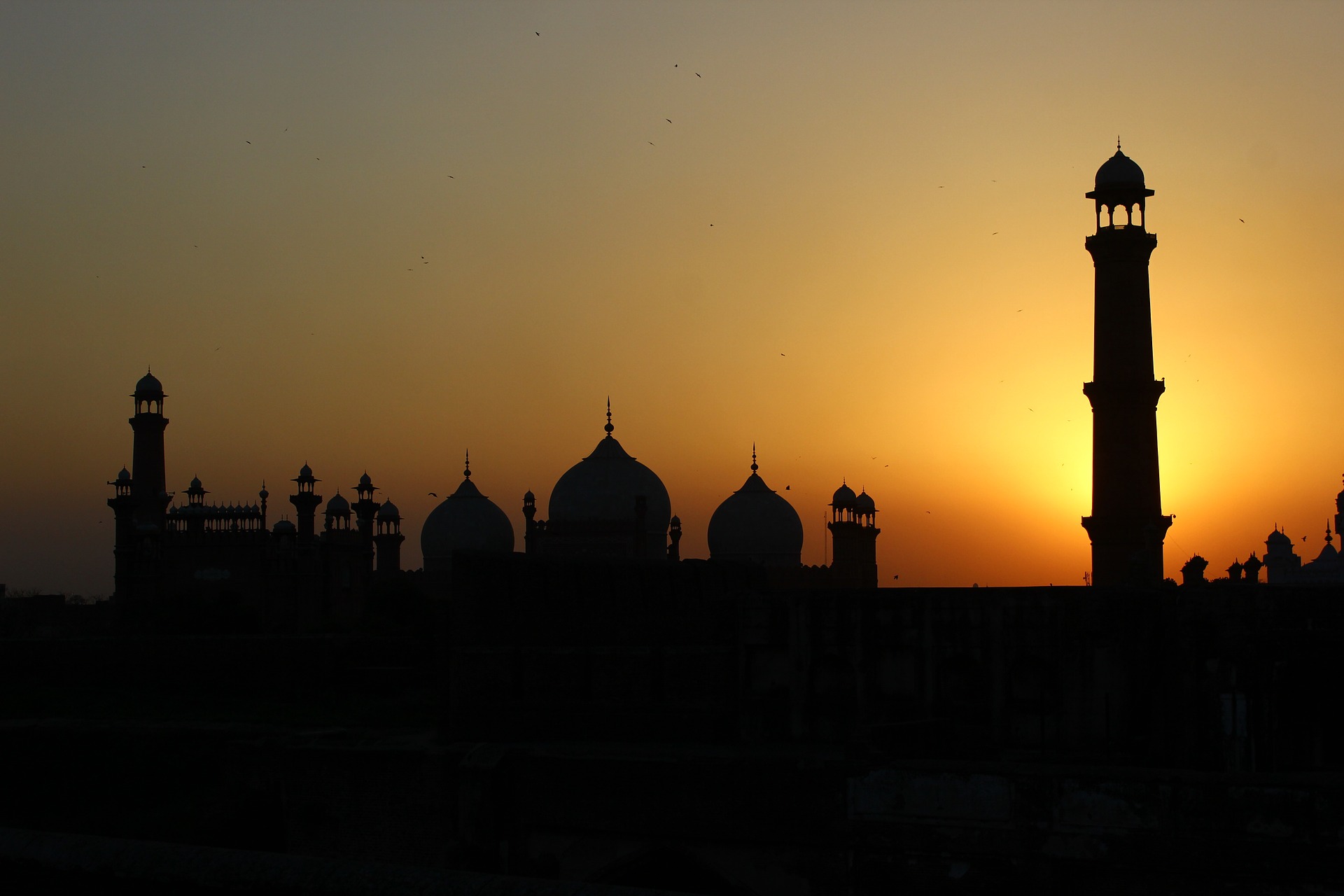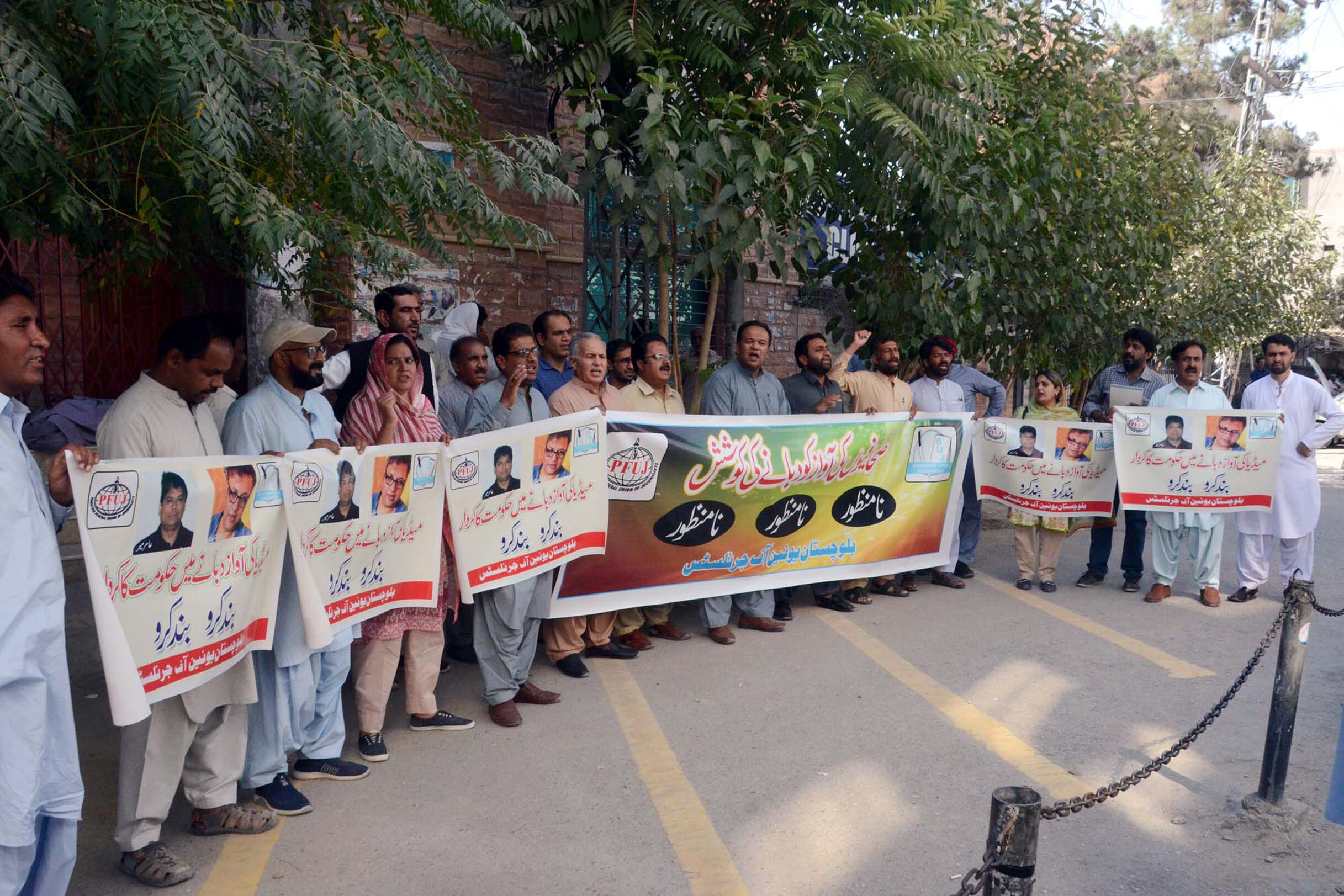Pakistan: Regulator exerting greater control as public radio gets uplift
17th March 2023
There has been an alarming spate of attacks on media freedom and freedom of expression driven by the country’s regulator.

In a sign of worsening conditions for free media in Pakistan, the private TV station, ARY News, once again had its licence suspended by the Pakistan Electronic Media Regulatory Authority (PEMRA).
The news and current affairs channel faced the punishment after it broadcast a speech by the former Prime Minister, Imran Khan. The station is perceived as being loyal to Mr. Khan after he was ousted last year. PEMRA had earlier implemented a blanket ban on featuring either speeches or press conferences with Mr. Khan. ARY News had already been suspended before, back in August 2022 before courts ordered to restore the station.
National and international condemnation of the government followed the latest decision. The Pakistan Federal Union of Journalists said PEMRA’s actions violated the law, while the Pakistan Press Foundation (PPF) called for an immediate lifting of the ban. “Such steps … are likely to have a chilling effect on Pakistan’s already censored media landscape,” the PPF said in a statement. “[It] is not the responsibility of a broadcaster to censor what political leaders say, instead, it is their responsibility to keep the public informed about key developments in the country.”
Read more: Pakistan media regulator revokes private TV channel licence
Meanwhile, there was concern internationally as well. “The suspension of transmission would be tantamount to depriving Pakistan of the media freedoms enshrined in the Constitution of Pakistan that have been so hard fought for and defended by journalists and unions,” said the IFJ.
A US Congressman also weighed in. “Now I am not here to support any political office in Pakistan, I am not here to support Mr. Imran,” said the Democrat, Brad Sherman, as reported by Dawn. “Rather I am advocating for the freedom of speech, due process and the even application of the rule of law in Pakistan.”
This sort of action has not been without precedent. The decision to ban broadcasts of Imran Khan had already been taken in November 2022.
Following ARY News’ most recent suspension, PEMRA has remained active. It banned the broadcast of a programme on a private TV network for two weeks for airing views by a political analyst which “made baseless comments regarding the aid given by the Sindh government to the earthquake victims of Turkiye,” Business Recorder reported.
The scope for what can be reported on has also been narrowed drastically. According to the PPF, PEMRA recently banned broadcasters from any content “pertaining to the conduct of sitting judges of the high courts and superior court.” The PPF said such a ban would “restrict the public’s access to information regarding developments on this. The media must be able to perform its duties through coverage of key developments in the country and to hold those in power accountable.”
Listen toour podcast
Uncovering and exploring the biggest
issues facing public media
It also banned TV coverage of terror events, Geo News reported. PEMRA accused channels of broadcasting information which was “unverified, speculative without consulting security agencies present on the spot … Such reporting hence creates panic and unwarranted chaos among the viewers not only in the country but also Pakistanis living abroad.” The policy has come amid a recent flurry of terrorist attacks.
Plans are underway to instil further censorship. In February, details emerged of a proposed bill which would criminalise criticism of the military. “The Pakistani government must refrain from weaponizing laws to weaken free speech and press freedom and public institutions must be able to withstand public scrutiny and criticism”, IPI Director of Advocacy, Amy Brouillette commented.
“It is not the responsibility of a broadcaster to censor what political leaders say, instead, it is their responsibility to keep the public informed about key developments in the country.” – Pakistan Press Foundation
Public interest media relies on conditions which allow freedom of expression, so they can provide competing viewpoints to audiences. However, it is evident from PEMRA’s recent actions, that these conditions are being severely hampered. As such, news entities are forced to self-censor to avoid being taken off air. State attempts to restrict freedom of expression are extending to the digital space as well. Wikipedia was temporarily blocked for internet users and only reversed after an outcry, RFE/RL reported.
Additional funding for national broadcaster
At the same time as the regulator clamps down on independent media, several stories have suggested a more prominent role for the state broadcaster, Radio Pakistan.
“A national asset” is how Radio Pakistan was described recently in an editorial in the Pakistan Observer.
“Being a state institution, Radio Pakistan has always played a pivotal role in the promotion of national ideology and policies of the state. As the official organ of the state, Radio Pakistan builds national narratives positively in the midst of war of conflicting interests. It also counters anti-state propagandas by some hostile countries and networks. It would not be an exaggeration to say that Radio Pakistan is a soft image builder of the state.”
The comment piece noted that the state broadcaster reached 88 percent of the country. But it said it has been depleted in recent years and is now “facing financial crisis.”
“There is dire need to reform and modernize this national institution and for this purpose, the Government must make necessary investment, which would be worth-making in view of the contribution of Radio Pakistan in the ideological defence of the country.”
Investment does appear to be forthcoming. The Federal Secretary for Information and Broadcasting, Shahera Shahid, recently told Radio Pakistan that the broadcaster would be taken to new heights. A suggestion has been made to fund Radio Pakistan through a “radio fee” which would apply to all vehicles, and generate an additional Rs15 billion for the broadcaster.
Related Posts
15th August 2022
Pakistan media regulator revokes private TV channel licence
The popular private news broadcaster,…
12th May 2022
Pakistan: new leadership, renewed promises for media freedom?
As a new government enters power in…
17th January 2022
Pakistan: Journalists face Contempt of Court charges
Journalists face contempt charges for…
21st September 2021
Pakistan: Media representatives “strongly opposed” to proposed media authority
Media workers in Pakistan continue to…



